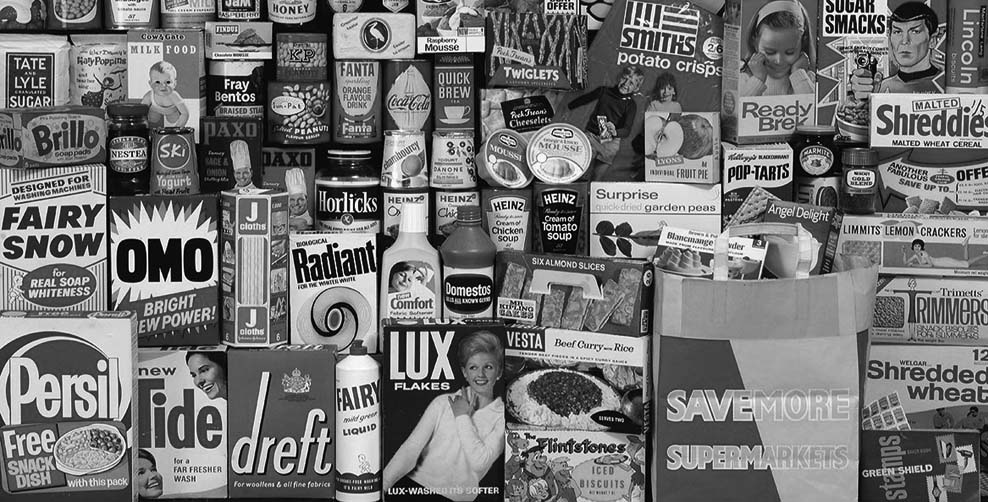The future of British retail
Britain's retail industry has often provided a lens through which we see British society. From wartime rationing to unparalleled consumption, retailers have met the demands of the British public in both the tough times and the good. But today we...
Britain’s retail industry has often provided a lens through which we see British society. From wartime rationing to unparalleled consumption, retailers have met the demands of the British public in both the tough times and the good. But today we are increasingly hearing that the future of the industry as we know it is under threat as margins narrow and a new wave of robots and machines stands ready to take over from human beings. This raises the question: what would such a shift mean for society?
Modern methods of British retailing were conceived in the aftermath of the second world war. Britain had been brought to its knees through wartime sacrifice, the destruction of industrial centres and crippling debt. The population endured a further decade of rationing and the gloom people had lived under took far longer to disappear. It was an era of scarcity.
As rationing came to an end, many of the retailers we now regard as household names opened their first self-service supermarkets. In 1963, the year in which my former employer Morrisons opened its first modern retail store, there was a growing confidence in the air. The Beatles released their first number one and Harold Wilson delivered his famous speech on the white heat of technology. One year later Habitat opened its first furniture and homeware store.
A decade of almost unprecedented experimentation in music, fashion and different tastes followed, and Britain’s retailers were always ready to meet growing demand for a wider range of goods. This resulted in hundreds of small local and regional retail chains becoming established, each with their own look, format and flavour.
Products previously regarded as exotic or luxury could increasingly be bought for a reasonable price. And retail stores were updated too, with the sober browns and greys of the 1950s giving way to more vibrant colours and visually appealing interiors. Shops gradually became more enjoyable places to spend time in.
In the 1970s the pace of retail modernisation picked up with a period of mass market expansion and consolidation that would last over thirty years. Today’s retail giants rose up rapidly with an incredible growth in the number of new stores, profitability, employment, productivity and quality.
A new era of mass consumption drove this growth as goods from all over the world became cheaper, more widely available and easier to store. Weekly shops and heavily loaded shopping trolleys at ‘big box’ supermarkets came to replace daily visits to the local store, and products that had been special treats became daily fixtures.
But by the time the financial crisis arrived in 2008, retail space had become saturated and the industry was in danger of becoming a victim of its own success. The crash led to reduced household spending, profits were squeezed and productivity plateaued.
Looking to maintain profits after the crash, many retailers squeezed their cost bases, increasingly passing risks on to their employees and suppliers through precarious contracting arrangements. Others invested heavily in their online offer and distribution networks, and by 2015 Amazon Prime Now was offering onehour deliveries to customers.
However the race to see technology as the only answer to the challenges in the sector is potentially storing up deep problems for the future. The British Retail Consortium, the industry’s leading employer association, has become the latest authority to warn that advances in technology and changes in the way we do business could threaten the livelihoods of vast swathes of the workforce. They put the toll at 1 million retail jobs by 2020. Others, including Oxford academics Carl Benedikt Frey and Michael Osborne, suggest the fallout could be even worse.
Forecasts for the reduction in employment in the industry suggest women – who make up the majority of the retail workforce – will be the hardest hit. Many will already be struggling to make ends meet after slow pay growth over the last decade.
While economists might argue that jobs may be created in other industries, it remains unclear which other industries have the capacity to replace millions of flexible jobs right across the country. Or to put it another way: how will a new software design job in Old Street help a former supermarket worker in Scarborough?
By any standards this would be a massive structural and social change. Were it happening in any other industry, there would be a national outcry and demands for a full-blown inquiry. However, leaders in the retail sector are claiming that such a decline in employment in the industry is an inevitable consequence of the march of technological progress, and government leaders appear to be oblivious, or worse, apathetic.
This report sets out to challenge some of these assumptions and oversights. It examines the role of technology within a wider economic, social and historical context, and in doing so aims to provide a better understanding of the role retailing has come to play in our lives, the productivity of the people who work in the sector, and the importance retail has for customers, communities, its workforce and the economy.
In doing so, the report asks fundamental questions about what the consumers of the future will want. In the last 60 years, retailers have overseen a shift from scarcity to abundance. As we look to the future, will this thirst for consumption endure as Jeff Bezos’s dream of the ‘everything store’ becomes realised? Or have we reached the point of what IKEA executive Steve Howard calls ‘peak stuff’, with consumer priorities shifting away from ever-cheaper goods towards personalisation, curation and a more tailored service?
As the UK retail industry stands at the crossroads, the decisions made by retailers, government and consumers now will have profound effects on jobs, the economy, and above all, society in the future. The report suggests that if retailers are in a position to meet the growing demand for a more human, more connected model of retailing, we might all be better off for it.

